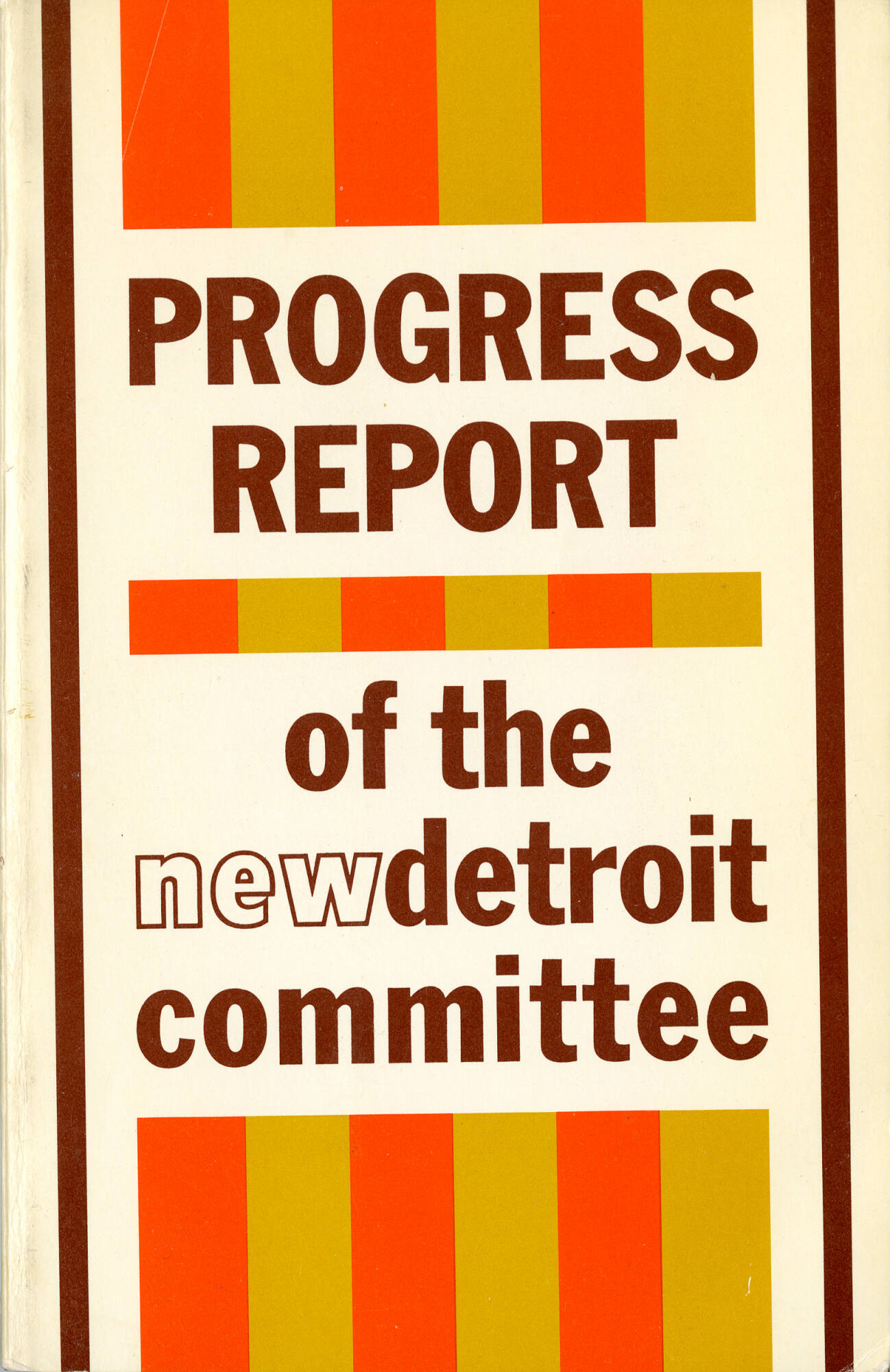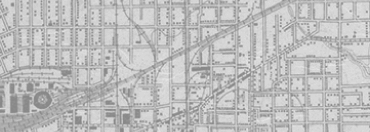


Back
"Progress Report of the New Detroit Committee" about the 1967 Detroit riots
This paperback book titled "Progress Report of the New Detroit Committee" is 160-pages and was issued by the New Detroit Committee, a group appointed by Governor George Romney and Detroit Mayor Jerome Cavanagh to explore the July 1967 Detroit riots and determine what changes needed to happen in Detroit to prevent something similar from happening again. The report identified areas of improvement in the city of Detroit that included housing, education, employment, economic development, community services, and community attitudes.
"Progress Report of the New Detroit Committee" about the 1967 Detroit riots
1968
Paper
8 3/8 × 5 3/8 × 1/2 in. (21.3 × 13.7 × 1.3 cm)
The Sixth Floor Museum at Dealey Plaza Collection
2022.010.0001
In the summer of 1967, more than 150 riots occurred in 128 cities across the United States. In an effort to determine the root causes of the riots and how to prevent future unrest, President Lyndon Johnson appointed the National Advisory Commission on Civil Disorders, commonly called the Kerner Commission, in July 1967. The Commission's report, released in February 1968, determined that the riots were primarily caused by white racism as well as inadequate housing, high unemployment, and other factors that contributed to two "separate and unequal" societies in the United States, divided by race. Dr. Martin Luther King Jr., who had predicted anger and potential violence due to poverty, was inspired in part by the 1967 riots to develop the Poor People's Campaign. -- Stephen Fagin, Curator

"Progress Report of the New Detroit Committee" about the 1967 Detroit riots
This paperback book titled "Progress Report of the New Detroit Committee" is 160-pages and was issued by the New Detroit Committee, a group appointed by Governor George Romney and Detroit Mayor Jerome Cavanagh to explore the July 1967 Detroit riots and determine what changes needed to happen in Detroit to prevent something similar from happening again. The report identified areas of improvement in the city of Detroit that included housing, education, employment, economic development, community services, and community attitudes.
"Progress Report of the New Detroit Committee" about the 1967 Detroit riots
1968
Civil rights
Investigations
Riots
Poor People's Campaign
Detroit
Paper
8 3/8 × 5 3/8 × 1/2 in. (21.3 × 13.7 × 1.3 cm)
The Sixth Floor Museum at Dealey Plaza Collection
2022.010.0001
In the summer of 1967, more than 150 riots occurred in 128 cities across the United States. In an effort to determine the root causes of the riots and how to prevent future unrest, President Lyndon Johnson appointed the National Advisory Commission on Civil Disorders, commonly called the Kerner Commission, in July 1967. The Commission's report, released in February 1968, determined that the riots were primarily caused by white racism as well as inadequate housing, high unemployment, and other factors that contributed to two "separate and unequal" societies in the United States, divided by race. Dr. Martin Luther King Jr., who had predicted anger and potential violence due to poverty, was inspired in part by the 1967 riots to develop the Poor People's Campaign. -- Stephen Fagin, Curator









